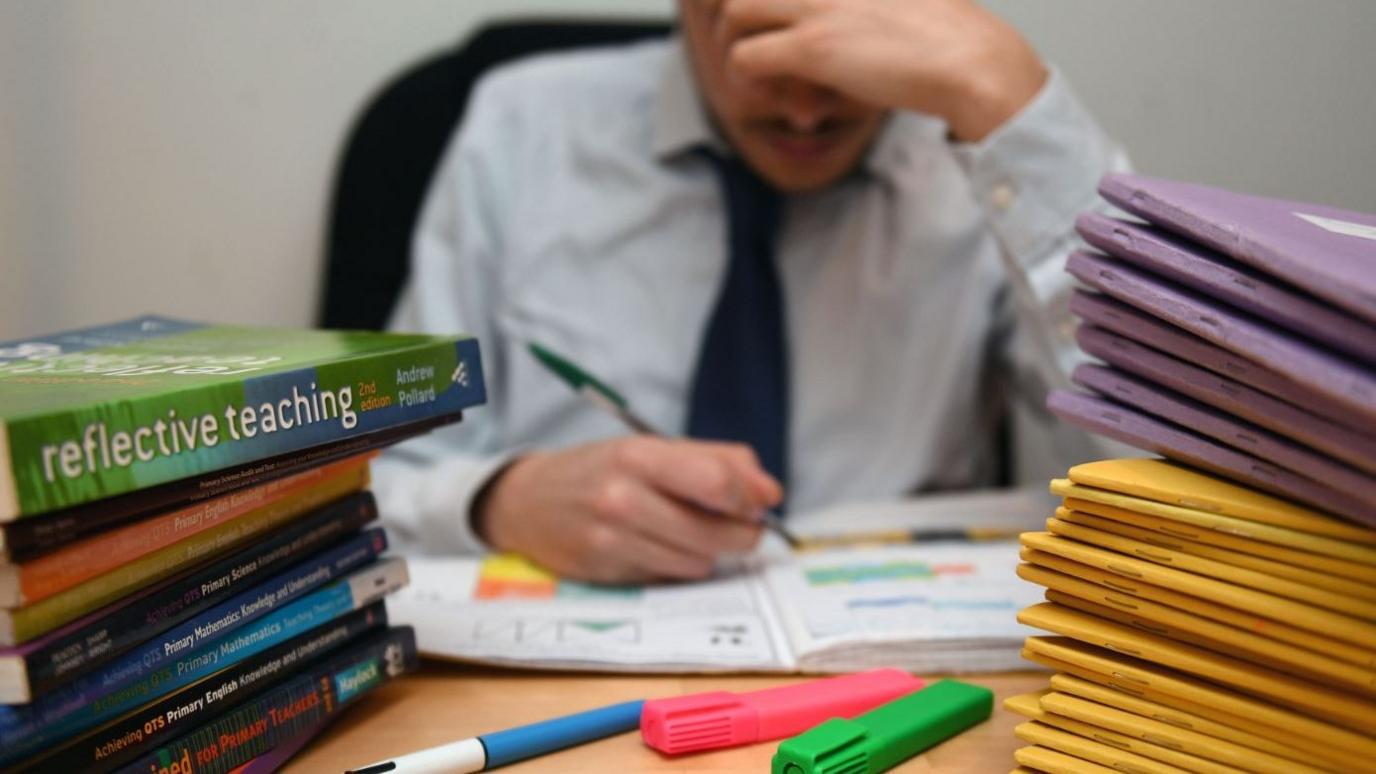Law 'puts teacher and pupil safety at risk'
- Published
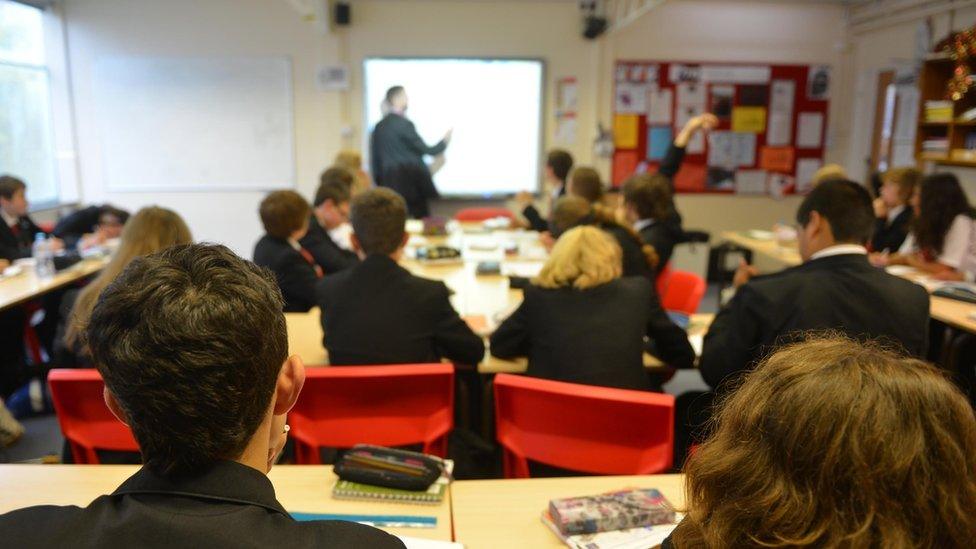
The safety of teachers and pupils is at risk due to data protection legislation, it has been claimed.
Criminal convictions, aggression, assaults and suspensions are often not known until after a child has been admitted by a school.
Due to data protection, there is currently no requirement to pass on details of violent pupils when they move to another school.
"Someone is going to get seriously hurt," a teacher told BBC News NI.
"How can staff or pupils ever really be kept safe if we don't know basic information like whether or not a child has a history of bullying classmates or assaulting teachers?"
The teacher, who works at a secondary school in Belfast, said he had found out about a new pupil's assault against a former teacher through another pupil.
He said this was after the child "lashed out" at a staff member.
"I have been in a classroom with an extremely violent child, who has had multiple dealings with the police, and we were none the wiser about his behaviour," he said.
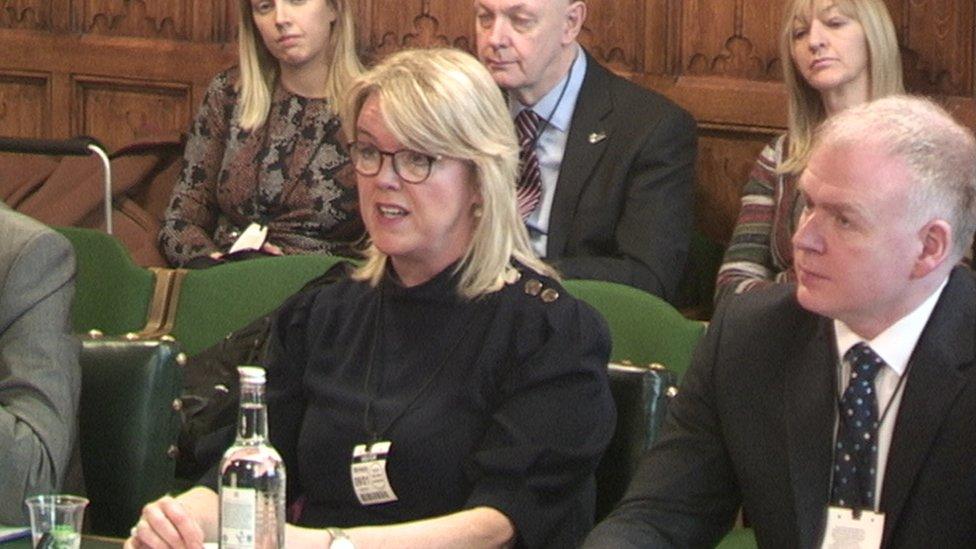
School principal Geri Cameron and union representative Justin McCamphill called on the current procedures to be changed
The principal of Loughshore Education Centre, Geri Cameron, told BBC News NI the Education Authority (EA) was involved in the movement of all pupils.
For example, the EA will find a new school for a pupil who has been expelled by a previous one.
But Ms Cameron, who is president of the National Association of Head Teachers (NAHT), said she knew "many principals who would say that insufficient information accompanies these applications".
"The increase in assaults on teachers is well documented at present and I would contend that this is symptomatic of insufficient support structures for pupils with challenges along with poor information sharing among professionals both in education and other departments such as health and social services," she said.
"Working with pupils who have complex needs, in terms of their learning, behavioural and emotional needs, requires a labour intensive, long term and highly skilled approach.
"Until EA and the Department of Education (DE) recognise that investing in this work will benefit everyone in both the school and wider society then we will continue to have unhappy, underachieving pupils, disenfranchised teachers and stressed principals."
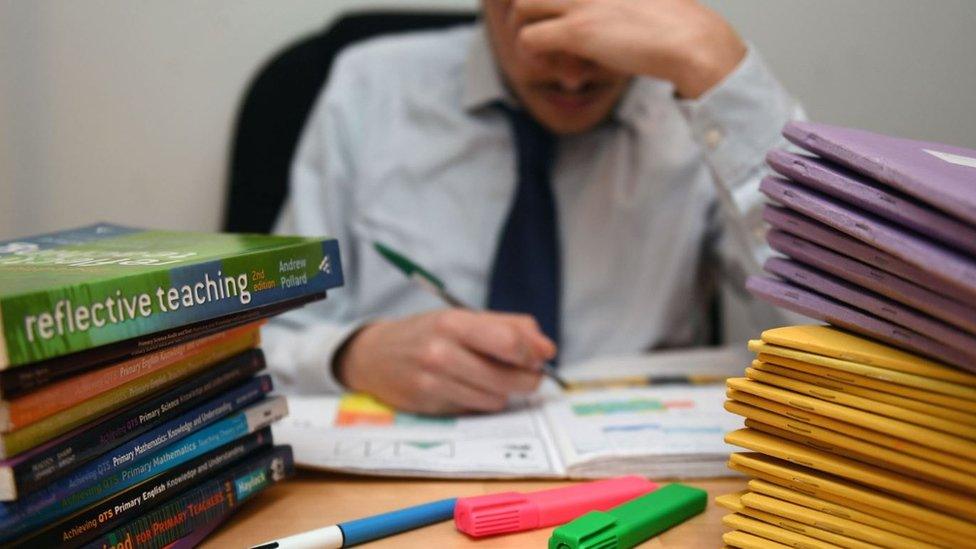
A spokesperson for the Education Authority said: "As a data controller, a school is responsible for record keeping and information sharing in relation to personal information in accordance with data protection principles.
"It also has obligations under the Education (Pupil Records) (Amendment) Regulations (Northern Ireland) 2001.
"This legislation places requirements on schools in relation to the keeping, disclosure and transfer of pupil records as referred to in DE Guidance Circular No 2001/17 Education (Pupil Records)."
When asked for a comment on its guidelines, the DE said: "The role of the board of governors is to ensure that the arrangements operated by the school for the retention, management and release of public records comply with statutory requirements."
It said a formal record of a pupil's "academic achievements and progress as well as their other skills and abilities" should be sent to a new school within 15 school days of the pupil transferring.
It did not mention anything about behavioural records.
Setting up for failure?
But Ms Cameron said that new General Data Protection Regulation (GDPR) and other mechanisms can be used to prevent the safe sharing of data.
She said this can mean "very negative information about a pupil" is often not relayed until after a pupil has been accepted into a school.
"No one is saying that pupils with challenges do not deserve equal opportunities to access education, quite the opposite in fact, pupils with challenges deserve the very best of tailored, specialist support so that they can make progress," said Ms Cameron.
"However a lack of meaningful, comprehensive information accompanying the pupil in to their new school can set them up for failure.
"The price of this failure is often an incredibly distressing experience for both the pupil and the staff."
Justin McCamphill, from the NASUWT union said it would be "totally unacceptable for a school or employing authority to endanger staff or pupils when it is foreseen than an incident could happen".
"If information about a history of violent and/or disruptive behaviour is not passed on from the previous school, then it will be impossible for the receiving school to put in the measures necessary to address the needs of the young person which led to the violent behaviour in the first place."
- Published9 January 2019
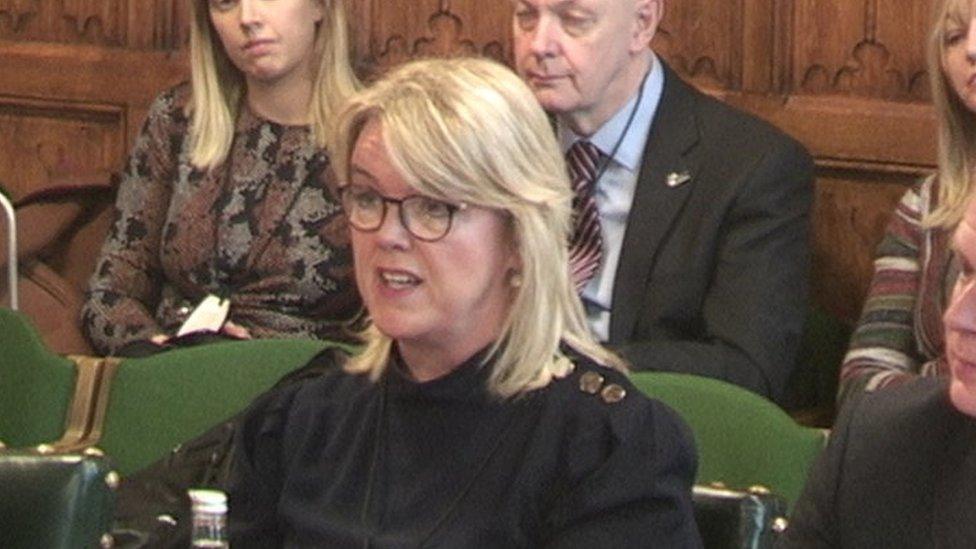
- Published17 January 2019
